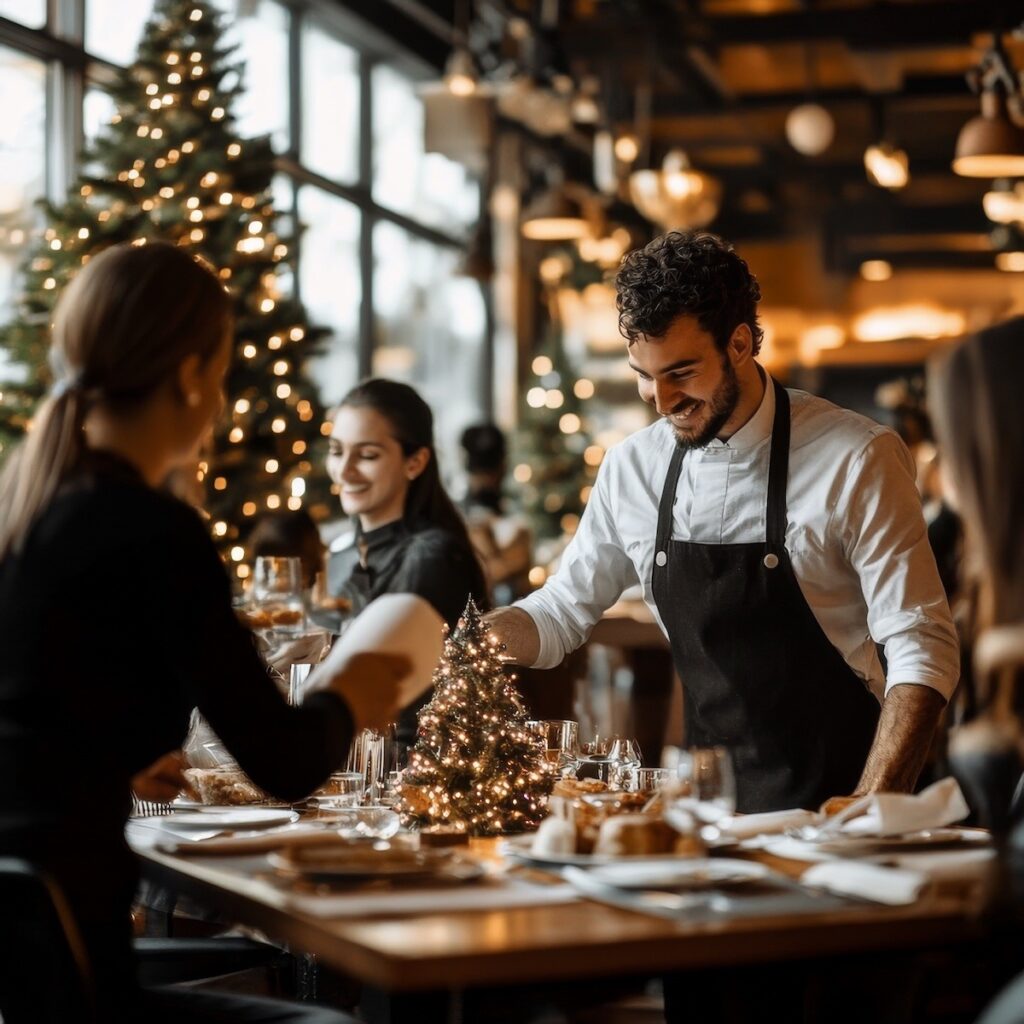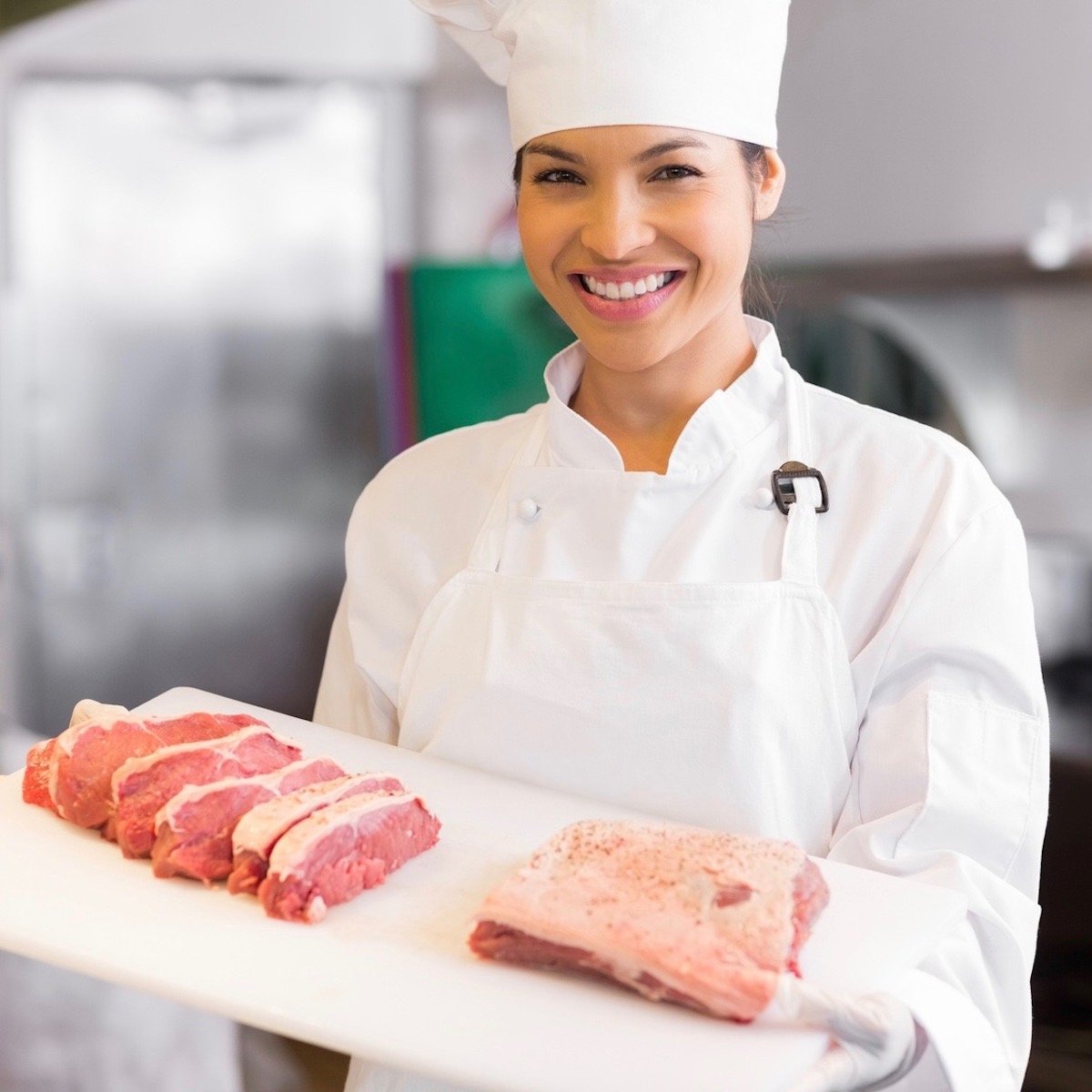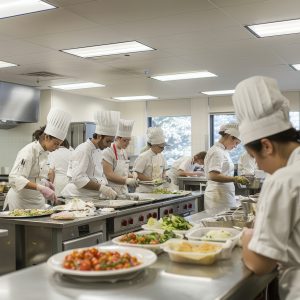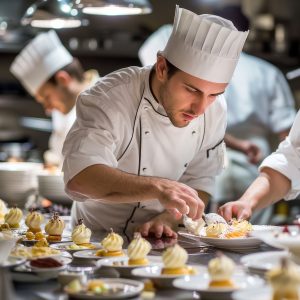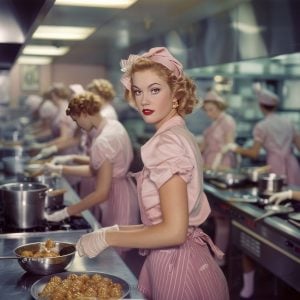The Truth About Working Holidays in a Hospitality Management Job
Working in the hospitality industry during the holidays is an experience unlike any other. As the season of celebration and togetherness unfolds, restaurants, hotels, and event venues buzz with activity, becoming the heart of festive cheer for many. This time of year can be rewarding and challenging for hospitality workers.
The holiday rush brings guests eager to savor special meals, events, and vacations. It’s a time when the demand for excellent service escalates, making the ability to stay composed under pressure even more crucial.
While the work can be demanding—often involving long hours and bustling shifts—it offers unique opportunities. The festive atmosphere, the chance to create memorable experiences for guests, and the camaraderie among staff contribute to a sense of accomplishment and shared joy.
However, balancing the job’s demands with personal holiday celebrations can be tricky. Navigating this busy period requires careful planning, a positive mindset, and a deep commitment to hospitality. This post explores the realities of working in the industry during the holidays, offering tips and insights to help you thrive during one of the year’s most exciting and hectic times.
What To Be Aware Of
When working during the holidays in the hospitality industry, it’s essential to be aware of several key factors:
- High Demand and Long Hours: Expect increased customer traffic, which can lead to extended shifts and longer workdays.
- Increased Pressure: The heightened expectations during the holidays can create a more stressful environment. Maintaining quality service under pressure is crucial.
- Guest Emotions: Holidays can bring out strong emotions in guests, both positive and negative. Be prepared to handle both festive cheer and occasional stress from customers.
- Team Dynamics: Working closely with your team becomes even more critical. Strong communication and support among staff are vital during this busy period.
- Limited Personal Time: Balancing work with personal holiday plans can be challenging. Be prepared for less time off and possibly working on key holidays.
- Special Menus and Events: Familiarize yourself with holiday-specific menus, events, and promotions, as these will likely be a focus during this time.
- Cultural Sensitivity: Everyone celebrates the holidays differently. It is essential to be aware of and respect diverse traditions and preferences.
- Fatigue Management: The busy season can be physically and mentally exhausting. Take care of your health by ensuring adequate rest, hydration, and self-care.
The Holiday Shift Rotation
Although every restaurant and hospitality employer differs, most operate on a seniority-type scale. This means that the longer you’ve been a part of the company—and the more time you’ve spent demonstrating your loyalty—the better your chances for holidays off.
If you’re new to a company, expect to get the worst shifts and work more than your fair share of national and religious holidays.
You might also be offered a chance to “rate” your holidays to choose which ones are most important for you to have off. This type of scheduling tends to work well when several employees are at the same skill level since you can often shuffle the hours you’ve been given with your coworkers.
How to Cope with Holiday Hours
Coping with holiday hours in the hospitality industry requires a combination of practical strategies and self-care practices. Here’s how to manage:
- Prioritize Rest: Sleeping enough is crucial with longer shifts and busier days. Try to stick to a regular sleep schedule, even if it means going to bed earlier on your days off.
- Stay Energized: Fuel your body with healthy, energy-boosting foods and stay hydrated throughout your shifts. Avoid too much caffeine, as it can lead to energy crashes.
- Set Boundaries: Communicate your availability in advance and set realistic boundaries with your employer and loved ones. This can help you carve out personal time, even during the busiest days.
- Stay Organized: Plan your day, prioritizing tasks that need to be done. This helps reduce stress and keeps you focused, even when the workload is heavy.
- Find Moments to Relax: Even during long shifts, take breaks to breathe, stretch, or have a quick snack. These mini-breaks can recharge your energy.
- Embrace the Holiday Spirit: Try to enjoy the festive atmosphere at work. Engaging with the holiday cheer can boost your mood and make the long hours feel more rewarding.
- Lean on Your Team: Support each other during this busy time. A strong team can help share the load, making the work more manageable and enjoyable.
- Focus on the Positive: Remind yourself of the extra income or tips that often come with holiday hours and the opportunity to make guests’ holidays special.
By staying mindful of your physical and mental well-being, setting boundaries, and fostering a positive work environment, you can navigate holiday-hours challenges with resilience and even find moments of joy in the hustle.

